Ethiopia: A dispatch from West Tigray and North Amhara
… In mid-November, after the first week of … and deliver medicines and supplies to health care facilities and ambulances, which we had …
… In mid-November, after the first week of … and deliver medicines and supplies to health care facilities and ambulances, which we had …
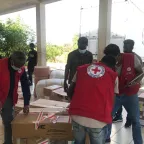
… Red Cross and led the study that resulted in a report titled Access to Health Care during Armed Conflict and Other …
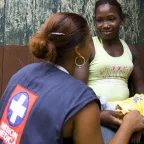
… Celebrating the amazing work of health care workers …
… International legislation for protecting the provision of health care during conflict and other emergencies is …
… Dr Dimarin Dimatingcal is 63 and retirement is not a … patients and ensuring they receive the right care. He performs two or three surgeries daily … in a trauma training course organized for health-care professionals by the International …

… Health-care workers should be provided with tools, … ensure both their physical and mental well-being. It is essential to keep this in mind when … Gaza, Syria and Ukraine. Read: Health Care in Danger newsletter, July – November 2015 …
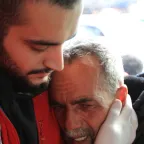
… ICRC to publish a new report today called, “Joining Forces to Combat Protracted Crises: … by an intricate mesh of water, sanitation, health and electricity systems. When these … $2 billion per year globally in health care costs and lost productivity.” Yet a GTFCC …
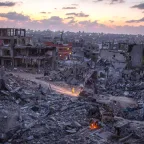
… hostilities between Gaza and Israel broke out in May and lasted for 11 days. The ICRC has … during this difficult time. Supporting health facilities is our key priority, and … the awareness of over 750,000 persons on the dangers of unexploded ordnance (UXO). 1,000 …
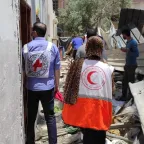
… Speech given by Ms Christine Beerli, Vice-President of the ICRC at … Humanitarian Day panel on "Violence against health care and its implications for affected …
… Independent external evaluations at the ICRC … work of the ICRC Regional Delegation in Lima Health Care in Danger Strategy Community Contact …

Try one of the following resources:
Created in 1863, the ICRC library, alongside the ICRC archives, provides an indispensable documentary reference on the organization itself and international humanitarian law.
International humanitarian law is based on a number of treaties, in particular the Geneva Conventions of 1949 and their Additional Protocols, and a series of other instruments.
Customary international humanitarian law consists of rules that come from "a general practice accepted as law" and that exist independent of treaty law.